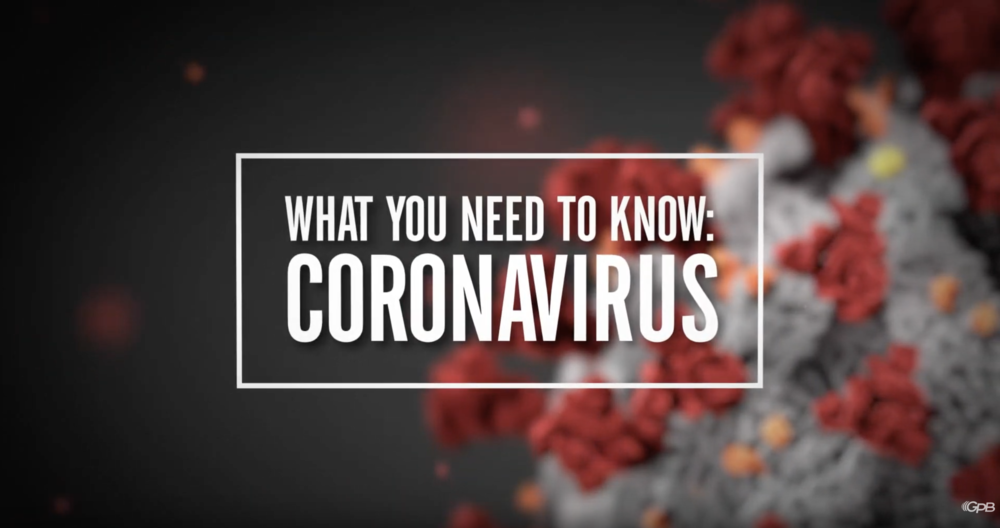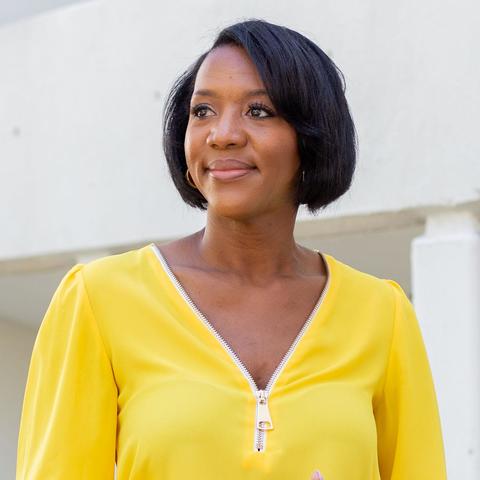Section Branding
Header Content
What You Need To Know: Nursing Homes And In-Home Patient Care
Primary Content
Georgia Public Broadcasting’s new series What You Need To Know: Coronavirus provides succinct, fact-based information to help you get through the coronavirus pandemic with your health and sanity intact.
Sonja Gunter, an Atlanta-based home health nurse, speaks with GPB's Morning Edition host Leah Fleming about her recent experience at an assisted living facility and well as in-home health care during the coronavirus pandemic.
According to the Associated Press, nursing home deaths tied to COVID-19 have soared more than 3,600 nationwide. Here in Georgia, Gov. Brian Kemp says that there are at least 80 long term care facilities with cases and the state National Guard has been dispatched to help disinfect. Are you surprised by these numbers?
Actually, I'm not surprised at all. You can do all that you can to shut the buildings down and protect it. They've been doing a wonderful job across the board. I really believe people have done their best. But when you have staff coming in and out of the building and the coronavirus symptoms are asymptomatic in a lot of people more so than those with symptoms. I'm not surprised at all.
Tell us a little bit more about what you do and what is a typical day like.
I am in transition from an assisted living. It's a senior living community. They are similar. Different regulations, but very similar. I'm going back into home health, so I'll be more in the field again and visiting residents in their home; patients in their home. But at an assisted living from day to day, it is just making sure that the needs of the community are met, then making sure that the residents are receiving their meals, their activities, some kind of stimulation and just trying to keep everything and everybody in good spirits. Because it's a tough time.
Now, we've heard stories about caregivers, doctors, nurses coming down with COVID-19 after caring for patients. Do you think about that in your own life?
Oh wow. So I'm glad you brought that up because I'm involved in a lot of different nursing groups on social media. And so the conversation is, "Well, you're a nurse. So this what you chose to do."
And then you have people who are like, "Listen, I'm a nurse. I did sign up to die for the profession." So absolutely it stays on my mind a lot. I have a daughter here who is pregnant. I have my mother-in-law who is with dementia that lives with us. And so I think about it even maybe more so than others, because not just myself, but bringing it home to my family. So it's definitely on my mind. Absolutely.
So up until a couple of weeks ago, you were working at Benton House of Decatur. Did you have any coronavirus cases there?
We only had one.
What lessons did you learn from nursing homes where the rates were really high?
You know, there is no perfect answer. If I can just be honest with you, I don't think there is. I don't know what I've learned from it because this thing changes daily. The CDC regulations are changing daily, minute by minute. This is OK. That's not OK. This is what it is. These are the symptoms.
I think what it boils down to is Nursing 101, and that is you treat everybody as if they have something. That's just standard precaution and you're taught that in nursing school. And then also don't come to work sick. Make sure you're washing your hands. These are your basic hygiene and immune system response needs.
I don't understand really how we got so far from that because that is just the everyday way of living it should have been anyway.
And on the flip side, I would think that you would expect that when you go to a facility that you are being cared for as well— being given protective equipment to wear and to keep yourselves protected and dealing with patients.
Absolutely. And my company did a great job making sure that we were protected and we had what we needed to get the job done.
What does the staff do to keep your spirits high? Because certainly your emotional well-being, you speak about having to come home to your family after work. What do you do to take care of your mental health?
Oh, man. Really embracing the moment. This is to find the positives in it. You know, it's not all bad thing. I think that the coronavirus, when it first happened, it seemed very unreal.
It seemed like in the middle of a movie. I felt like we were in between watching us and we had become the movies. But when you really sat down and kind of relaxed and really looked at the positive being able to rest, I almost feel like those are reset button on the world.
We were able to enjoy our families and parents and children— those that can— and spouses and relationships being strengthened and redeveloped and just getting to a quiet place. And so it's been great just getting into that mindset, into that quiet spot. It's probably been the best thing for mental health. Yeah.
You said "rest." I think that is so important for mental health.
Yes. Yes, absolutely. I'm ready to go back. Like, I've been off now for two weeks and I'm ready. I'm well rested. And now I'm looking at the virus like, "You know what? I'm going to go face you head on. I'm ready." I'm ready to do it. Yes.
So you're now a home health nurse where you're going into people's homes to take care of primarily elderly residents. Is it possible to follow social distancing guidelines in that kind of a setting?
No, that's tricky. I'm going to learn more force when I go Monday and start my new venture. However, what I understand is Medicare laws have allowed for telehealth. So if there are families that say, "You know what? We don't want someone to come into the home," which is understandable, we can do a visit over the phone and still be able to put eyes on the patient. So that helps with social distancing.
Other than that, you are just making sure that you're gloved up, masked up and protected when you go in.What's interesting is what we're seeing now — especially in home health — what I understand is with hospitals releasing a lot of the stable COVID-positive patients back into the home, us home health nurses will be the ones taking care of those to keep the beds open and the hospitals open for the more severe cases.
So, I'm not quite sure yet how that's going to look. I haven't had the opportunity to go do that, but I'd imagine there's going to be some protection on both sides.


